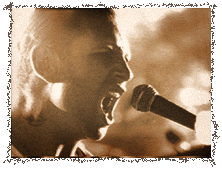Back to Articles
 Las Vegas
Las Vegas
Review
MTV Interview
Weekly Wire
Web Moment
|

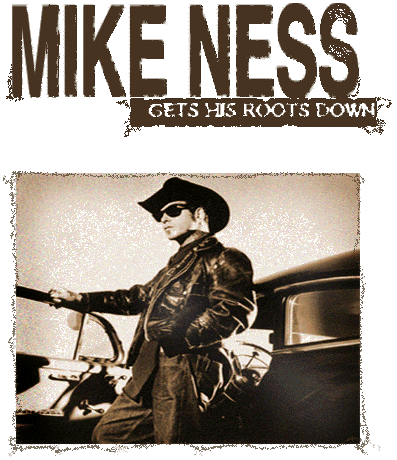
Since helping found Social Distortion in the wake of the late-'70s punk explosion in L.A., Mike Ness has developed into one of the scene's more recognized and respected figures.
As singer and guitarist for Social D, Ness has always been openly reverent of folk and blues music, drawing as much inspiration from such artists as Johnny Cash and Hank Williams as he has from the Clash or the Sex Pistols.
Social Distortion has been on hiatus since the release of 1996's "White Light, White Heat, White Trash," which spawned a minor hit with the single "I Was Wrong." Since then, Ness has spent his downtime writing songs and working on material for his first solo record.
The resulting album, the just-released "Cheating at Solitaire," finds Ness stripping down to his folk, rockabilly, and country roots, all the while keeping true to the passion inherent his punk-rock past.
Shortly before the release of "Cheating at Solitaire," Ness stopped by MTV's Times Square studios to perform an acoustic cover of Bob Dylan's "Don't Think Twice." MTV News had a chance to sit down with Ness to discuss the various vintage styles found on his new record, his "Solitaire" collaborations with Bruce Springsteen and Brian Setzer, and the future of Social Distortion.
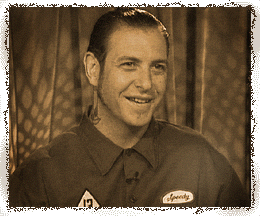
MTV: What were you hoping to achieve with the solo album that you felt you somehow couldn't with a normal Social Distortion record?
Ness: Well, mainly I wanted to show people my roots. And I feel that if you don't got roots, you don't got sh**. Roots music is as important to me as punk music, and this was a chance for me to really explore that freely without limitations or boundaries, and it was very liberating from what I normally do.
Social Distortion is pretty one-dimensional. We're like the Ramones. Turn it up to 10 and just go full throttle from start to finish. "Cheating at Solitaire" was just a chance to creatively expound on my skills, I guess, and to grow.
MTV: You've always expressed a reverence for artists such as Johnny Cash and Elmore James in your punk songs. Did you find it easy, then, to slip into the role of a folk singer?
Ness: Well, it's no secret that I'm really into American roots music, whether it's Depression-era folk music or blues or rockabilly or just primitive rock and roll in general. But I had much more freedom in bringing that stuff out on a solo record.
However, the main focus of the album was to bring to that kind of music the style that I've always had, which is really just an attitude. The angst, the emotion, the everything that I've put into all my records in the past. So even though I may be doing a pretty song, I wanted to add the passion as if it were an angry punk song.
MTV: What were some of the differences in writing material for this record as opposed to creating something for the group?
Ness: Aside from the music being a different dynamic, the solo stuff is obviously much more roots-based. We did a lot more dramatic approaches to the instrumentation than we normally would with Social D. I don't know, it's tough to describe "Solitaire." I haven't quite figured out whether the new record is harder or softer, or if it's more serious or carefree than the band stuff.
But I didn't do the album to prove something to the rest of the world, but to prove to myself that, you know what, I can sing country music if I want. I can sing jazz, rockabilly, and other types of songs than just what people have seen me do for the last 20 years.
It feels neat to have two projects going now. It just dawned on me the other day that when I walk into a record store now, I'm gonna have two bins for my stuff -- one for Social Distortion, one for Mike Ness. So that's a good feeling. But the two careers also balance each other out, so by the time I get tired of doing this, I'll be really excited about doing a Social D record. When I get tired of that, then I can go back to this. It's fun.
MTV: There are a couple of covers on the record, including a version of Bob Dylan's "Don't Think Twice" and Hank Williams' "You Win Again." What inspired you to pick those songs?
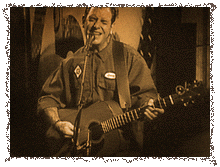 | Mike Ness on 120 Minutes
"Don't Think Twice"
RealVideo |
|
Ness: I tend to pick songs that just floor me for one reason or another. Usually I'll sing them at home alone in my dining room for 6 months, and somehow along the way they become my songs. I borrow what they did, and then I take it somewhere else. But the record, even what I covered, is very personal, very reflective, and very relevant to my life now as well as the past.
But that's also how I write. I can't go into a studio setting and then force myself to get creative. I need to go work on my car for a week, or go to the flea market all day, or screw up my life romantically before I can pick up the guitar. Then it just pours out.
MTV: Bruce Springsteen and Brian Setzer both put in guest appearances on "Cheating at Solitaire." Tell us a little bit about how you managed to hook up with the two of them.
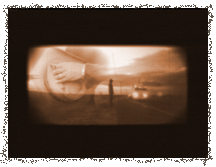 | Bruce Springsteen
"The Ghost Of Tom Joad"
RealVideo |
|
Ness: Well, the neat thing about this record is that we intended to have guests come in and help make it even more special right from the start. We had a list ranging from Johnny Cash to Brian Setzer and Bruce Springsteen. There were even some female vocalists we considered.
But the record really has kind of a dark, somber, working-class feel to it, and that's why we thought those people would be able to bring something to it. As for Bruce Springsteen, I really like him as a songwriter, and he's a big Social D fan. Brian Setzer brought in his Gretsch [guitar] to the studio, we smoked a cigar, and then he went out and played. His lines and guitarwork really added a lot to the song.
MTV: The kind of punk music you first saw when Social Distortion first came onto the scene back in 1978 is radically different than the punk scene today. Does it surprise you how accepted that style of music has become?
Ness: It's strange. For us, back then, punk rock was such a revolutionary thing, and no one had any idea where it was gonna end up. Now, 20 years later, it's almost become mainstream. It's mainstream to want to get tattoos these days and listen to punk, I guess.
MTV: Do you feel that there's still a place in the music industry for the kind of roots and punk-based rock that you do on this solo album and as part of Social Distortion?
Ness: Social D may never be the kind of group that sells 5 million records or anything like that, but the fact that we've always been just beneath the surface of commercial success has actually helped drive us to go on.
People ask me all the time, "What would you want to do if you could do anything with your career right now?" and I just simply tell them, "To continue. I just want to keep going." These days the average life span of a band is three and a half years, and you can come in and make your millions with one or two hits, but can you stand the test of time and be here 10, 15 years later and stay with it.
Sometimes I wonder how we've been able to do it for so long. Other times I'm just grateful that we have and don't even question it. But we always wanted to be well known, and I think that I always wanted to be a rock star, even going back to when I was a little kid. So it's neat. At least I don't have to paint houses anymore.

|



